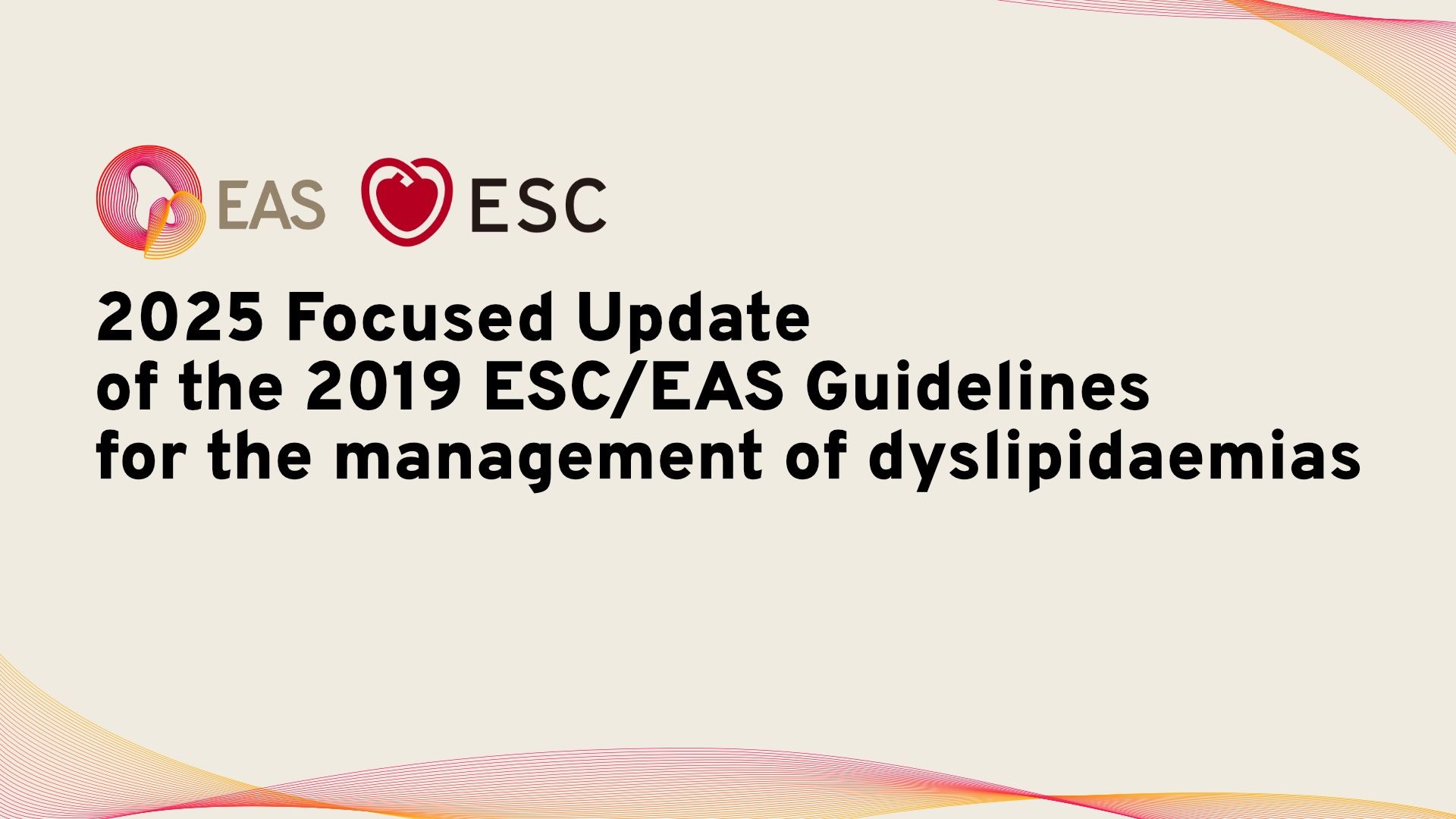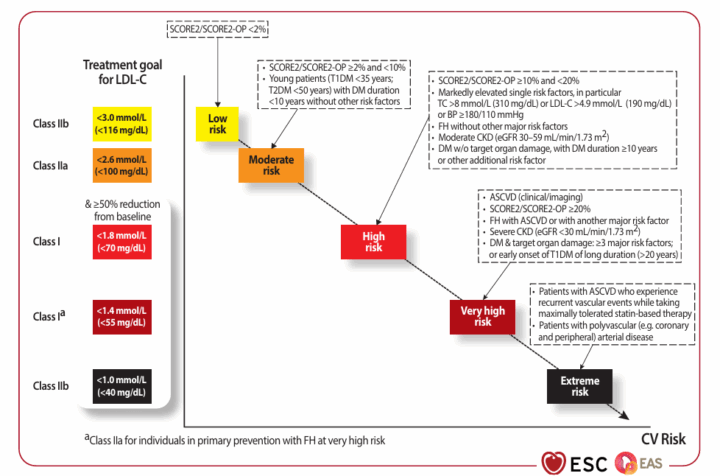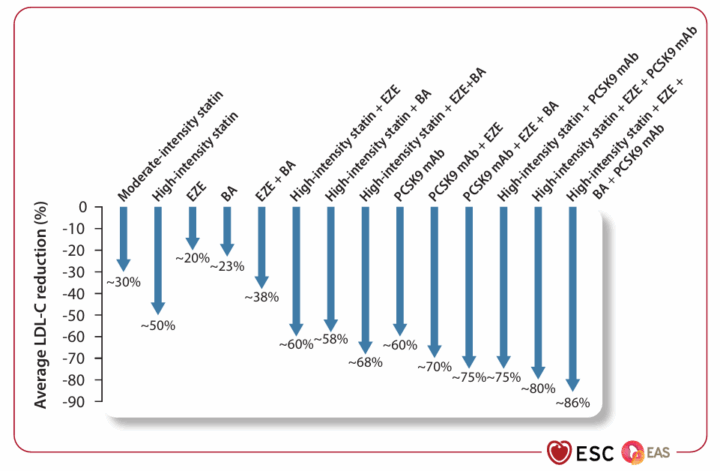
2025 Focused Update of the 2019 ESC/EAS Guidelines on Dyslipidaemia Management
We are pleased to share important news from the European Society of Cardiology (ESC) and the European Atherosclerosis Society (EAS). At the ESC Congress 2025 in Madrid, the societies jointly announced the publication of the 2025 Focused Update of the 2019 ESC/EAS Guidelines for the management of dyslipidaemias.
This update reflects the latest scientific evidence up to March 2025 and brings new recommendations that will directly impact the care and treatment of people living with lipid disorders – including those affected by familial hypercholesterolaemia (HeFH and HoFH), elevated lipoprotein(a) [Lp(a)], and familial chylomicronaemia syndrome (FCS).
Since the last full guidelines in 2019, many new clinical trials have been completed. Some of these trials have shown important benefits from newer treatments or clarified how existing therapies should be used. Because of this, the ESC and EAS decided not to wait until the next full guideline revision, but instead to publish a Focused Update, ensuring patients and doctors can benefit from the most up-to-date care recommendations right away.
🔹 New SCORE2 & SCORE2-OP risk algorithms for more accurate prediction of heart attack and stroke risk (What is SCORE*)
🔹 Introduction of bempedoic acid and evinacumab for LDL-C lowering
🔹 Early, intensive lipid-lowering therapy now recommended in heart attack (ACS) during hospital admission
🔹 Lp(a) >50 mg/dL (≥105 nmol/L) officially recognized as a cardiovascular risk modifier
🔹 Updated recommendations on hypertriglyceridaemia, including novel RNA-based therapies
🔹 Strong evidence for statins in people with HIV (REPRIEVE trial)
🔹 Guidance for cancer patients at high cardiovascular risk during chemotherapy
🔹 Clear statement: dietary supplements show no proven benefit for preventing heart disease
A step forward towards more personalised and aggressive prevention in high-risk patients.


Key Updates for Patients
Familial Hypercholesterolaemia (HeFH & HoFH)
For those living with inherited high cholesterol, the update introduces new therapies. Alongside statins, ezetimibe, and PCSK9 inhibitors, additional medicines such as bempedoic acid and, for HoFH, the antibody evinacumab, are now recommended as effective options. These treatments can provide stronger LDL-cholesterol lowering, where older drugs may not have been enough.
Elevated lipoprotein(a) [Lp(a)]
High levels of Lp(a) are now more clearly recognised as an important risk factor for heart disease and aortic valve disease. The guidelines recommend that everyone should have their Lp(a) checked at least once in their lifetime. For those with very high levels, the update advises early and intensive cholesterol-lowering treatment, even while we await the arrival of specific Lp(a)-lowering medicines currently in clinical trials.
Familial Chylomicronaemia Syndrome (FCS)
For the first time, the update makes a strong recommendation for volanesorsen, a treatment shown to lower triglycerides by up to 77% and reduce the risk of pancreatitis in people with FCS. This represents a major step forward for a condition that has long had very limited treatment options.
These updates are part of a continuing shift towards earlier, stronger, and more personalised lipid management. The message is clear: lowering LDL-cholesterol and addressing risk factors like Lp(a) and triglycerides saves lives.
The full guideline update has been published in both the European Heart Journal and Atherosclerosis.
And don’t forget: FHEF will host upcoming patient-friendly webinars to explain these changes further.
✨ Together, we are moving closer to a future where patients with inherited lipid disorders can live longer and healthier lives.